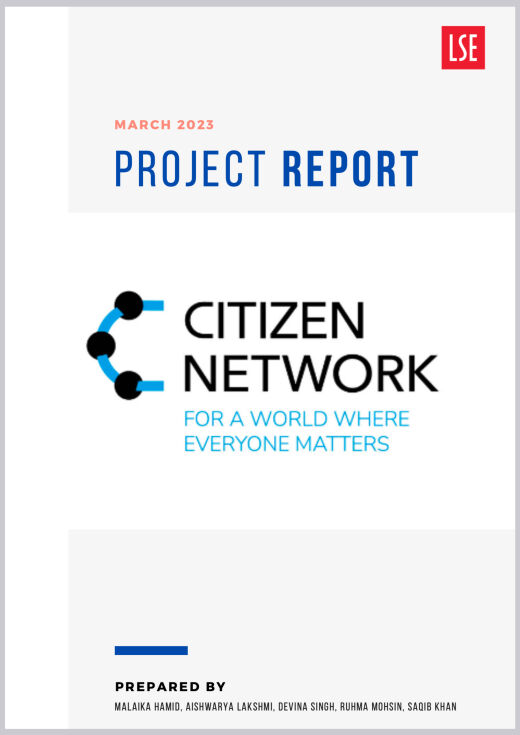A report evaluating the inclusion of disabled refugees, focusing on education, housing and employment.
Authors: Malaika Hamid, Aishwarya Lakshmi, Devina Singh, Ruhma Mohsin and Saqib Khan
Earlier this year, Citizen Network had the privilege of working with a team of students from the London School of Economics on a project created in partnership with Practera. Practera is a technology platform delivering experiential learning programs, managing programs and connecting students to industry projects and internship opportunities, and this report is the result of our joint project.
The findings in this report suggest that Spain has made significant progress in the inclusion of disabled refugees. The Spanish government has implemented various policies and programs to provide housing, education, and employment opportunities to refugees with disabilities. However, the effectiveness of these policies remains limited due to the lack of implementation at the local level.
Spain has shown greater efforts in promoting inclusive education, providing affordable housing, and creating employment opportunities for disabled refugees. However, there are still areas for improvement, particularly in providing access to specialized healthcare services and improving the implementation of existing policies at the local level. The findings of this study provide valuable insights for policymakers, NGOs and other stakeholders involved in refugee resettlement and integration in Spain and other EU countries.
We would like to thank the LSE student team: Aishwarya Lakshmi, Devina Singh, Malaika Hamid, Ruhma Mohsin and Saqib Khan for creating this report for us.
Find out more about Practera at: https://practera.com
Read and download the free pdf in your browser, link below.

The publisher is Citizen Network. Inclusive Development and Improved Accessibility: A Comparative Policy Analysis on the Educational Attainment, Employment Opportunities and Housing for Refugees with Disabilities in Spain and the EU © Malaika Hamid, Aishwarya Lakshmi, Devina Singh, Ruhma Mohsin and Saqib Khan 2023.
community, social justice, Finland, Spain, Paper